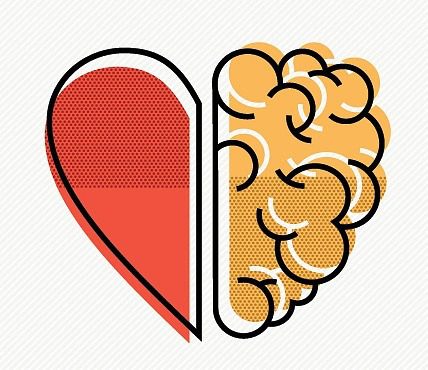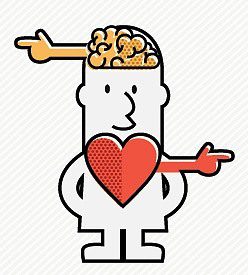 In the days before Viagra, men seeking a quick fix for their troubles in the bedroom dreamed of the day someone would invent a pill that could magically restore their virility. But for many, no such pill exists – even now. No medication on the market today can cure non-physical forms of sexual dysfunction.
In the days before Viagra, men seeking a quick fix for their troubles in the bedroom dreamed of the day someone would invent a pill that could magically restore their virility. But for many, no such pill exists – even now. No medication on the market today can cure non-physical forms of sexual dysfunction.
“Men would say to me if there were a pill to help with their erection problems, they’d take it in a minute,” says Stephen Betchen, a Cherry Hill-based sex therapist who has been in practice for some 25 years. “After the pill came out, many of those same men wouldn’t even fill their prescriptions. It was their way of self sabotage. There was something else going on that made them not want to have sex.”
Viagra and its pharmaceutical peers Levitra and Cialis have helped millions of men whose sexual health has been diminished by medical complications. But for countless others, the conditions causing erectile dysfunction (ED), premature ejaculation or low libido are more complicated and often have psychological components.
As men search for the answers to their sexual problems, Betchen cautions that there is no one solution that will apply to all potency issues.
“No therapist has come up with the cure, because there isn’t a single cure to sexual dysfunction,” says Betchen, a clinical assistant professor at Thomas Jefferson University. “All you really need is one book that says, ‘Go find out what it is that’s causing your problems,’ because that’s what will really help. You have to find out what’s beneath the problem. If it’s not hormonal, the reasons are usually in your own consciousness, and you have to fish for it.”
The tricky part, notes Carolynn Aristone, a Haddonfield-based sex therapist, is that men often have no idea why they’re experiencing performance failures – and this only compounds the problem.
“Men in general are not groomed to express themselves and to admit they don’t have a desire for sex with their partner,” says Aristone. “The idea of not fitting into the cultural norm can be terrifying for them to admit. It stirs up questions that are potentially scary like, ‘What if I’m gay?’ [for straight men] or, ‘What if something’s wrong with me?’”
But experts say delving into the problem to uncover its cause can help. Once you understand the cause, couples can work on correcting the issue.
Porn and unrealistic expectations
For some couples, porn can provide a powerful boost in the bedroom; therapists and doctors may even suggest watching porn to ease couples into their own carnal exploration. But there is also a chance viewing porn will have the opposite effect, especially if a man or woman uses it to measure their own performance. If you do that, Aristone says, you’ll likely come up short.
“The influence of porn on expectations and what it means to be sexual can be frightening,” says Aristone. “If the male is not performing for hours and hours on end – say he ejaculates quickly – it could make him feel inadequate.”
On the flip side, comparing one’s partner to a porn actress is another potential minefield.
Aristone notes this form of sexual sabotage skews young. It has become increasingly problematic for millennial men, particularly ones whose porn exposure has not been balanced by frank discussions of sexuality and realistic sex education.
“Men want to believe their partners really love having sex with them,” says Betchen. “When they look at a porn movie, the women are doing all kinds of things and want to do it all day and night. Some men compare that to their spouses and think, ‘My wife doesn’t like doing that. She only fits me in between the kids’ soccer matches.’ It’s really hard to compete.”
Betchen has worked with men who turned to excessive masturbation rather than settle for their real-life partners, who may not be as excited about performing some of the acts they see in porn.
Fortunately, education is a powerful tool in repairing porn-influenced problems.
“I frequently will remind clients that porn is entertainment only,” says Aristone. “This is not real people having sex for pleasure.”
Power struggles in the bedroom
In an age when women outnumber men at colleges and universities and fewer couples include a stay-at-home spouse, it’s not surprising that power struggles among couples sometimes play out in the bedroom.
“It’s been documented that a lot of men feel lost and are not sure of their roles anymore,” says Betchen, who is currently writing a book on couples and power struggles. “It can affect their egos.”
In such cases, he says, it’s not uncommon for the man to lose interest in sex with his wife. “One way to exert power is to act as if you’re not attracted to your spouse anymore. One of the first places a woman will go to is that something is wrong with her, that she’s lost her looks or the sex isn’t good enough.”
Other times, he says, wives have become convinced their husbands’ lack of desire is a result of them having an affair or because they’re secretly gay.
In a recent case, counseling helped one man understand his impaired sexual drive stemmed from frustration over his wife’s excessive shopping, Betchen says.
“This guy didn’t realize it, but his erection wasn’t working because he felt like his wife spent too much money,” he says. “Every time he tried to confront her, she basically blew it off.”
 When the thrill has just waned away
When the thrill has just waned away
For many long-term couples, the excitement of the early stages of their relationship and young lust is but a distant memory. It’s not necessarily that the love is gone, but the reality of the demands of juggling kids and jobs, aging parents and tight finances can become overwhelming. For others, sex is just not as important over time. This becomes a problem when couples are not on the same page about what constitutes a good sexual relationship, says Charlotte Markey, a Rutgers-Camden psychology professor. Given how ingrained sexual conquest is in the male psyche, it is often the man who worries that less sex is a sign of his failure.
“It gets complicated as people grow more comfortable in relationships,” says Markey, who provides couples’ interventions in her Camden lab. “Sex provides an affirming quality in relationships, and some people don’t need it as much over time.”
One solution that works in the lab is discussion among couples about realistic expectations for their demographic.
“All the research on sexual frequency in partners shows it does decline with age,” says Markey. “People who used to go at it two, three times a week may be doing it once a week or less. If we feel we are failing in some way, that’s going to feed a cycle of disillusionment. But if people’s expectations are realistic, it’s going to help.”
Aristone adds that life stressors can “keep people in their heads” and make it hard to carve out energy and time for carnal pleasure. It is therefore vital for couples to find meaningful ways to connect by making time for each other, she says. In her practice, the remedy for sexual issues is often achieved as a result of redefining sex and intimacy as a whole body experience.
“A big piece of the work is switching from a mindset of being goal-oriented to being pleasure-oriented,” she says. “If you’re just focused on having your partner achieve orgasm and you can’t reach the goal, you may not be even willing to try.”
Subconsciously, the loss of libido can be a form of self-protection, she explains. It’s a way to reject your partner before your partner can reject you.
Switching to a pleasure orientation can take sex and intimacy to a whole new level for a couple, Aristone adds. “It just expands their universe and takes them to a place where there’s so much more awareness of what is sexually possible.”
Or it could be an early warning sign…
When a man loses desire or sexual functioning, his first move should be an appointment with his primary care doctor and testing of his testosterone levels. Medication helps some 50 to 75 percent of erectile dysfunction cases, says Allen Seftel, MD, the head of the urology division at Cooper University Health Care. Still, despite how common a condition it is, ED is not considered a natural part of aging and can be a sign of heart disease, hypertension, diabetes, depression and even stroke.
“We realize now that men need to be evaluated not only for their erections but for cardiovascular health,” says Seftel, who served on the American Heart Association’s panel studying sexual activity and cardiovascular disease. “Now that a lot of younger men know there are treatment options for their sexual dysfunction, they’re open to it; it’s no longer this taboo subject. Our job is to make sure their cardiovascular systems are ready to maintain the sex lives they once had.”


 When the thrill has just waned away
When the thrill has just waned away







